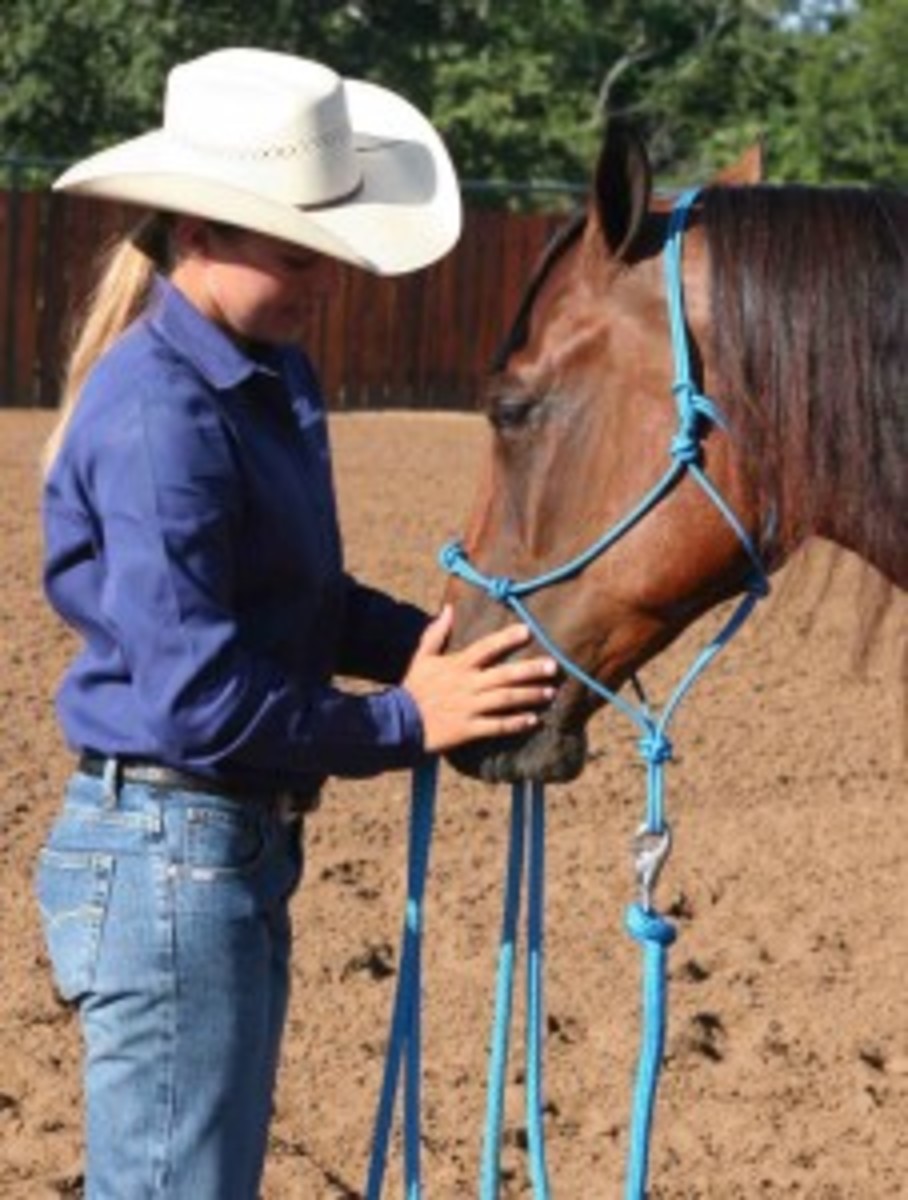
Do you need to be a scientist to train a horse effectively? No, obviously not. On the other hand, will it help you to understand the scientific principles of how all learners?including horses–learn? Yes, absolutely.
In my last post (“What Good Horse Trainers Don’t Do“), I talked about the fact that good trainers don’t take their frustrations out on their horses?they simply look for another, better way to communicate what they want. Shortly after I wrote that post, I was editing an animal behaviorist’s response for our “Whole Horse Q&A” in an upcoming issue of Horse&Rider and wham!?there was that exact same concept again, only with additional insights.
“The key problem,” wrote Dr. Lore Haug of Texas Veterinary Behavior Services, “is that riders or trainers often become frustrated?and sometimes even aggressive or abusive?with horses for behaviors that the rider/trainer actually trained or conditioned the horse to do” in the first place, if inadvertently.
For example, let’s say your horse begins acting up under saddle. Instead of trying to understand his behavior and working through the problem, you dismount and put him away for the day. You’ve just inadvertently “rewarded” his undesirable behavior–and can therefore expect more of it in the future.
Rather than labeling our horses as “difficult,” says Haug, we should analyze how we train “within the framework of the scientific principles of learning.”
Scientific principles of learning? Yes?these are the key facts about how horses learn that natural horsemanship types began explaining to us in the 1980s. Though “old” methods of training often involved coercion, enlightened methods use the principles of behavior modification and positive reinforcement.
These days, the science behind how horses learn is increasingly in the spotlight?everywhere you turn.
In her comments, Haug pointed out that the general field of applied behavioral analysis is a great resource for learning better training practices for all species?including horses and even people.
If you’re interested in finding out more about how applied behavioral analysis might, well, apply to your horse, check out a resource Dr. Haug recommends. That’s the “Behavior Works” blog of Susan Friedman, PhD, a professor at Utah State University.
“You don’t need to ?break’ anything to change behavior,” says Friedman, “but you do need to notice how behavior works.”
Learn more at the blog post, “Trainers With Jackhammers Need Not Apply.”






